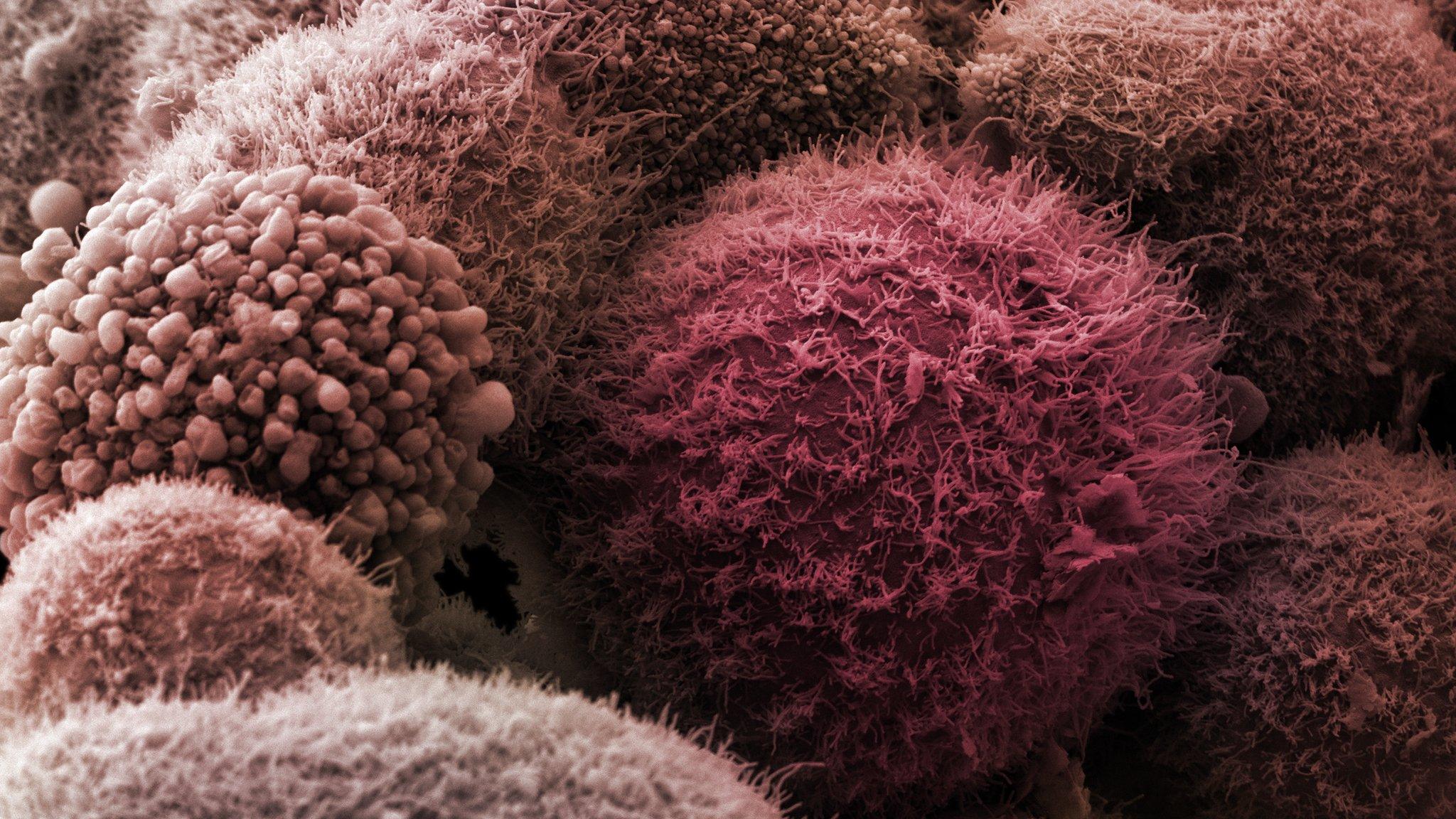World Cancer Day: New study into hard-to-treat cancers
- Published
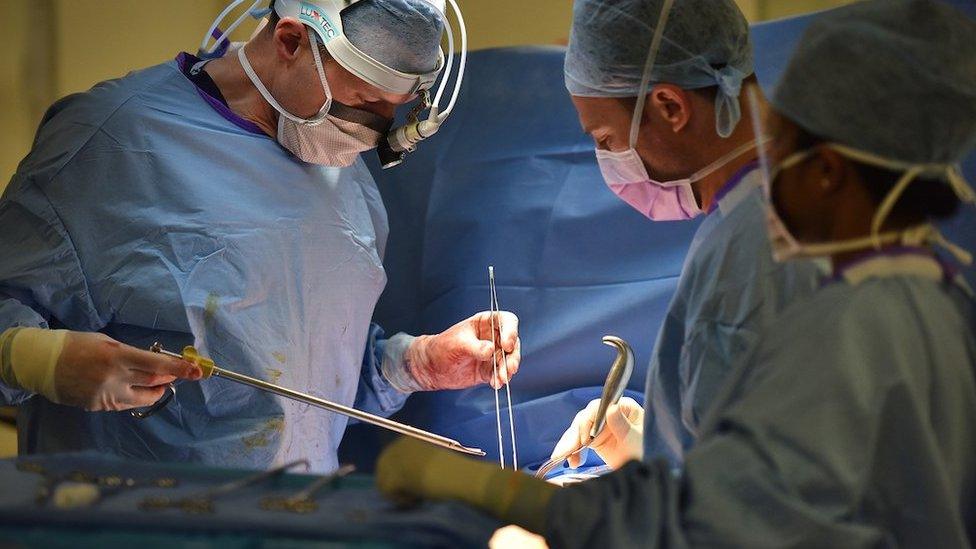
Two cancers which are among the hardest to treat and have very low survival rates are to be the focus of pioneering research at Queen's University Belfast.
The five-year survival rate for pancreatic cancer in Northern Ireland is 4.9% and for oesophageal cancer is 18.6%.
In England, the statistics are 6.9% and approximately 15%.
Cancer survivor Paul Fox said only research will help us beat cancer, or at least learn to live with it.
Cancer survivor Paul Fox says he is "living beyond cancer"
The 47-year-old, from County Down, was diagnosed with oesophageal cancer in July 2018.
It was detected early and having received treatment, three cycles of chemotherapy, he told BBC News NI that he is well on the road to recovery.
"I am very much living beyond cancer. I urge people particularly men to respond to symptoms, to seek help. It is actually being man enough," he said.
On this World Cancer Day, Cancer Focus Northern Ireland announced a £300,000 investment in pioneering research at Queen's University Belfast.
The new project will study pancreatic and oesophageal cancers.

Roisin Foster, chief executive of Cancer Focus NI, said: "We know that as people live longer, the incidence of cancer is rising and one in two of us can expect to get a diagnosis in our lifetime."
Common symptoms of pancreatic cancer include:
Stomach and back ache;
Unexplained weight loss;
Indigestion;
Changes to bowel habits, including floating faeces ;
Jaundice (yellow skin or eyes or itchy skin);
Feeling and being sick;
You may also develop symptoms of diabetes.
Symptoms of oesophageal cancer:
Difficulty swallowing;
Persistent indigestion or heartburn;
Bringing up food soon after eating;
Loss of appetite and weight loss;
Pain or discomfort in upper tummy.
Dr Richard Turkington, oncologist and cancer researcher at Queen's, who is leading the research, said the "pioneering" new project aims to determine how immunotherapy can successfully treat pancreatic and oesophageal cancers.
"[These] are two cancers which at present are hard to treat and have very low survival rates," he said.
Immunotherapy works by overcoming cancer cells' ability to hide from the body's immune system. It allows a patient's immune defences to identify and destroy cancer cells, but does not always work for everyone.
The stark facts
The UK and Ireland have the highest rates of adenocarcinoma of the oesophagus in the world;
The number of UK cases of oesophageal adenocarcinoma in men has risen by 50% in the past 25 years;
The rates of pancreatic cancer in UK are also increasing, with it expected to become the second-leading cause of cancer-related death by 2030, overtaking breast and colon cancer;
Pancreatic cancer is one of the least survivable cancers in NI.
Dr Turkington explained: "The outlook for these patients has remained unchanged for decades partly due to lack of research and investment.
"Our researchers will work to understand why most pancreatic and oesophageal types of cancers are resistant to immunotherapy and identify which drugs can be used to help overcome this resistance so patients will respond positively to the treatment.

Hollywood actor Patrick Swayze died from advanced pancreatic cancer aged 57
"Immunotherapy has transformed the outlook for specific cancers, such as lung cancer and malignant melanoma, previously thought to be relatively untreatable.
"We believe the same revolution can occur for oesophageal and pancreatic cancers.
"This new work will enable us to drive forward a new era of treatment. If successful it has the potential to save lives both here and across the world."
- Published27 October 2017
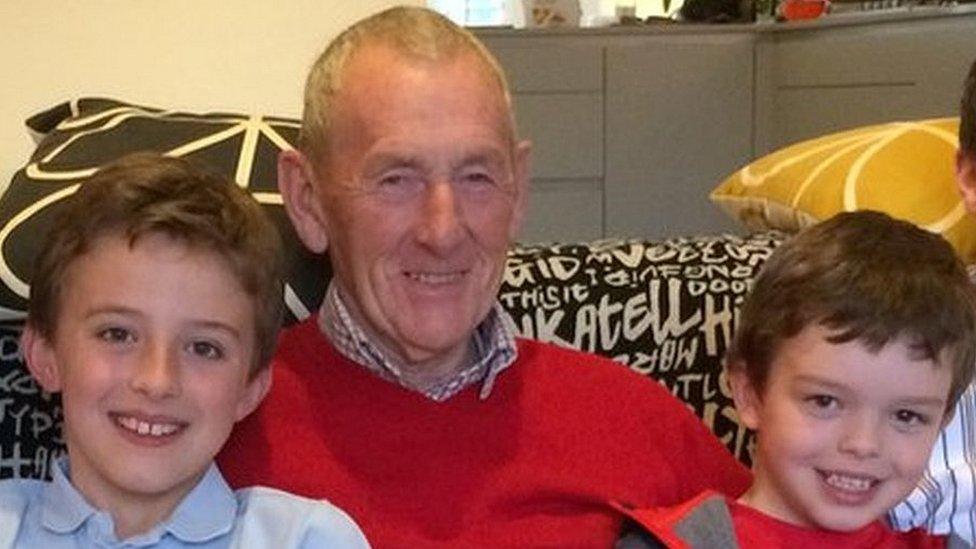
- Published1 November 2017
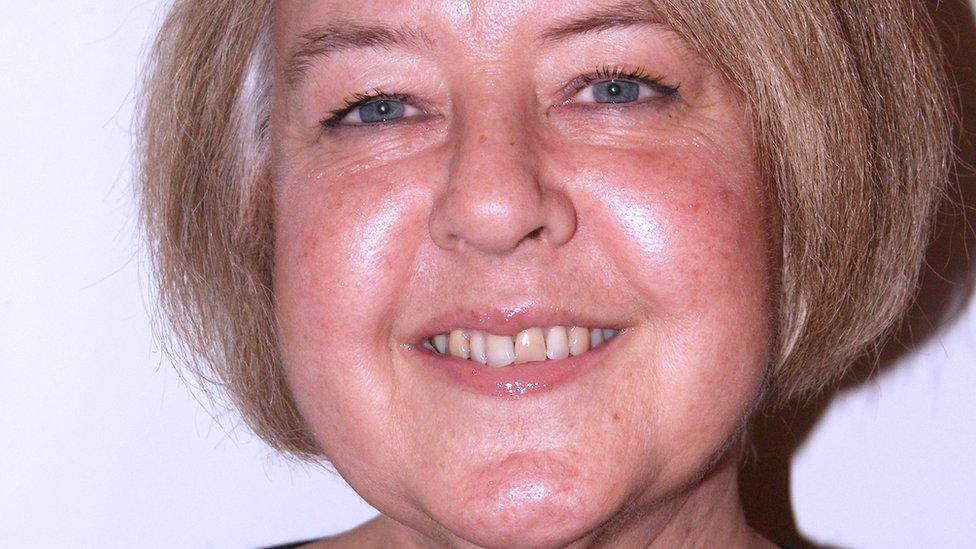
- Published7 October 2017
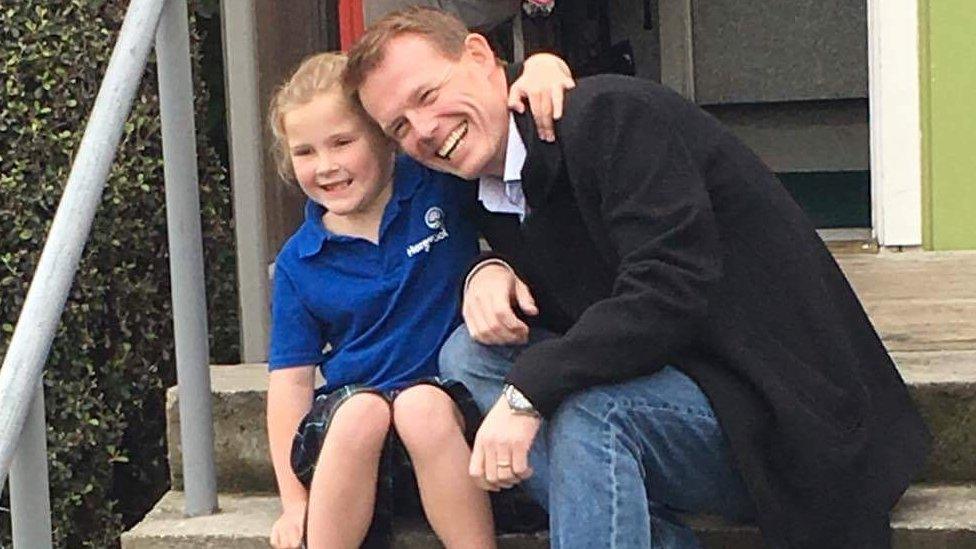
- Published1 August 2017
